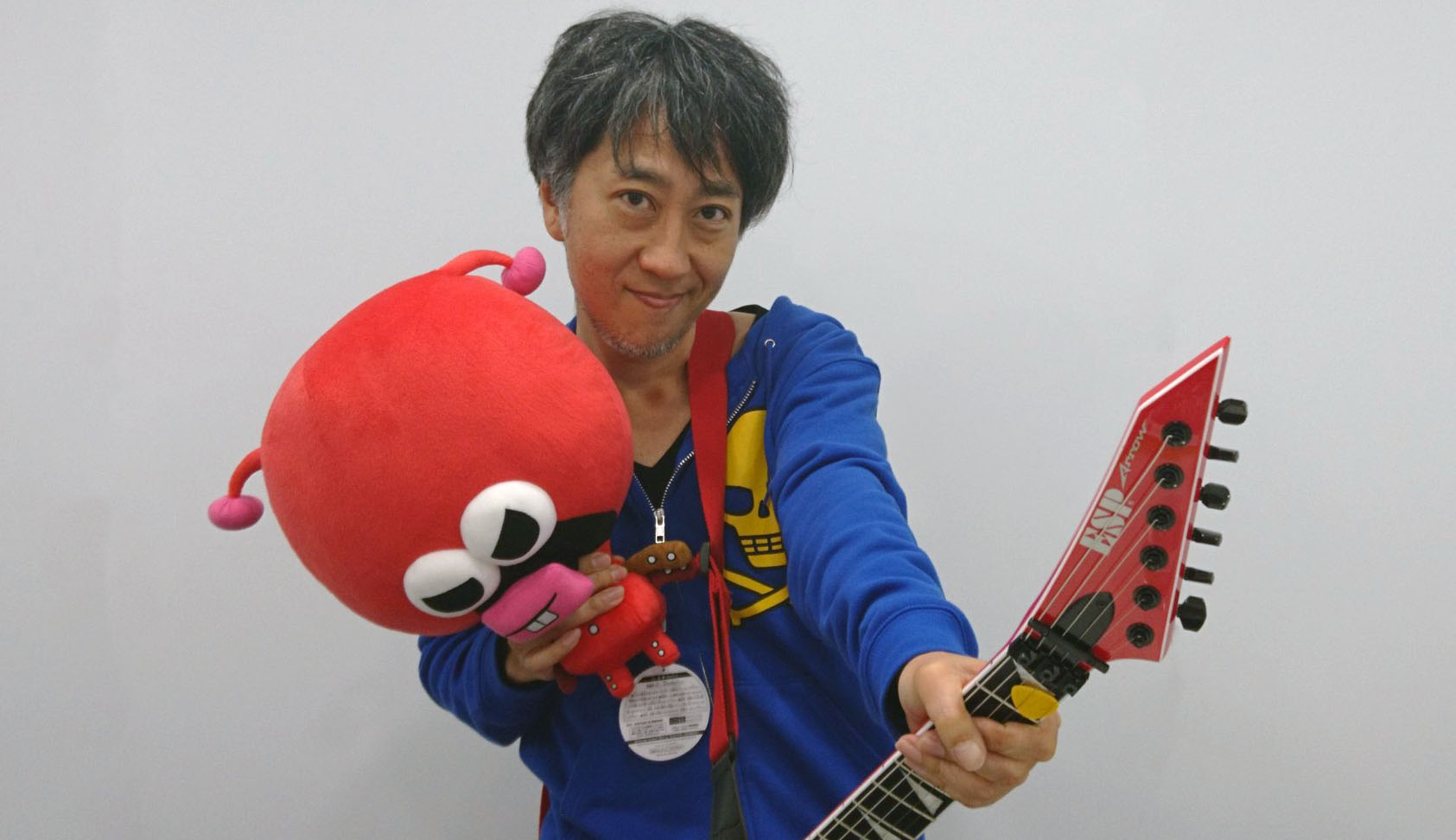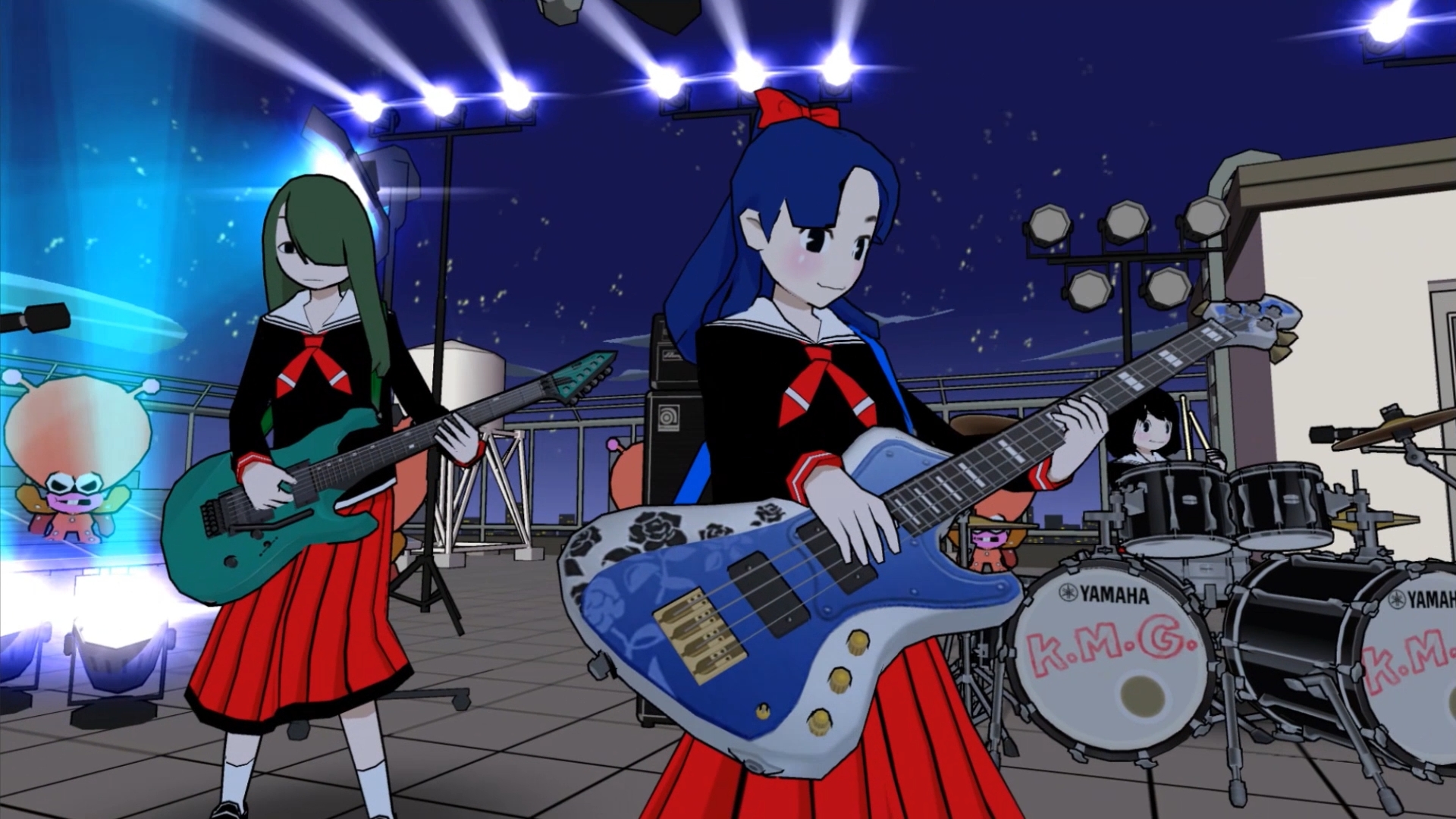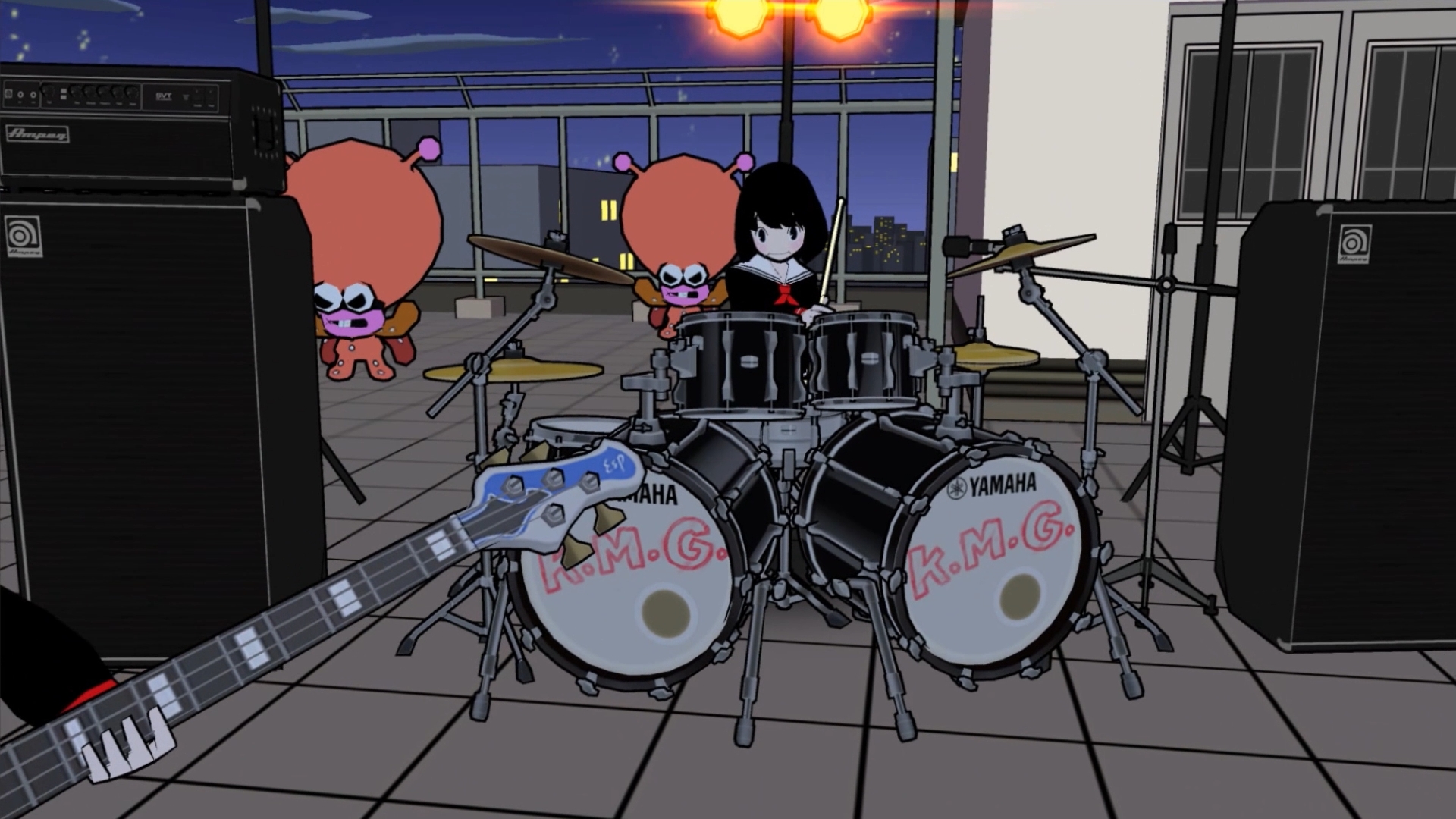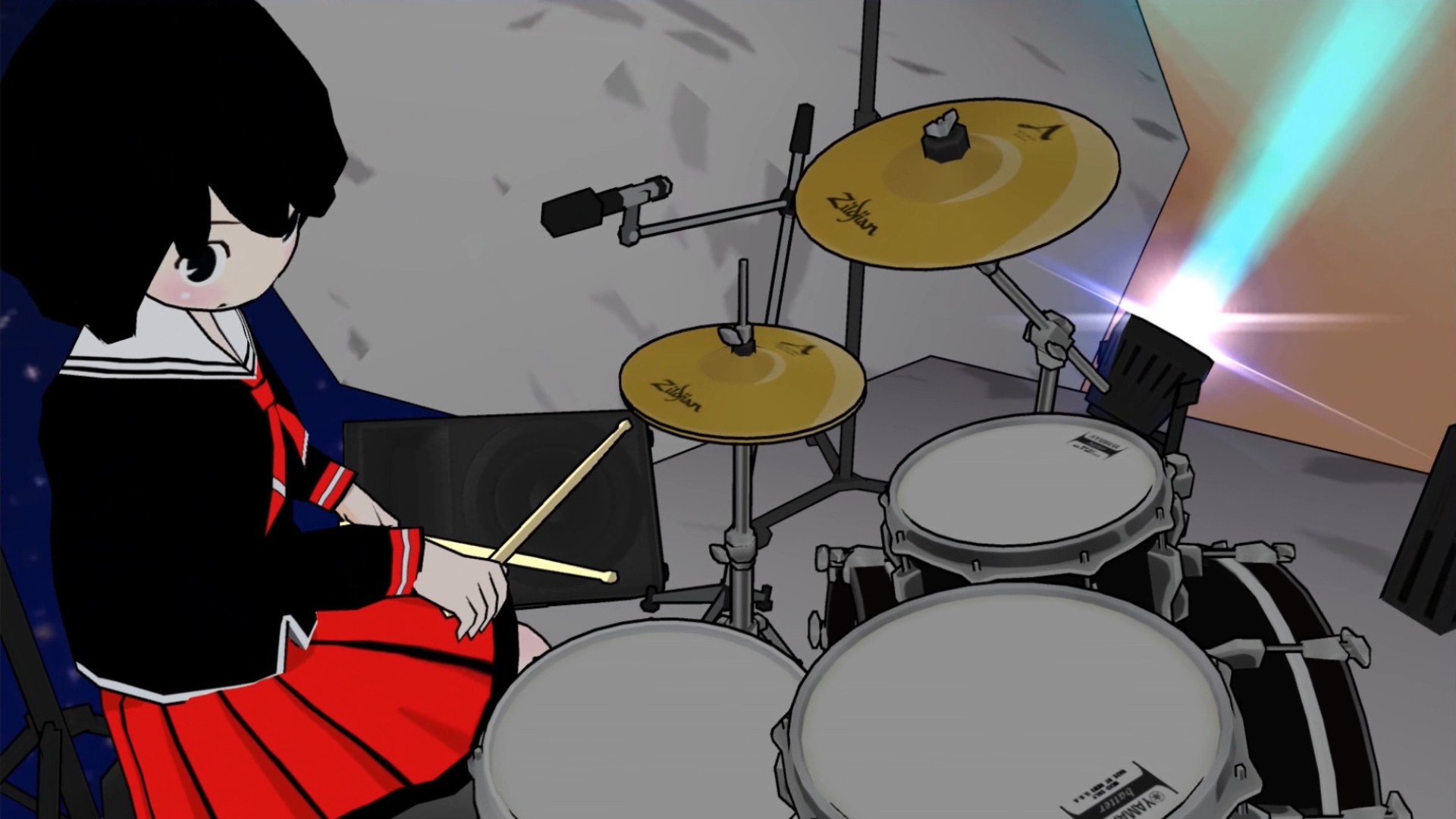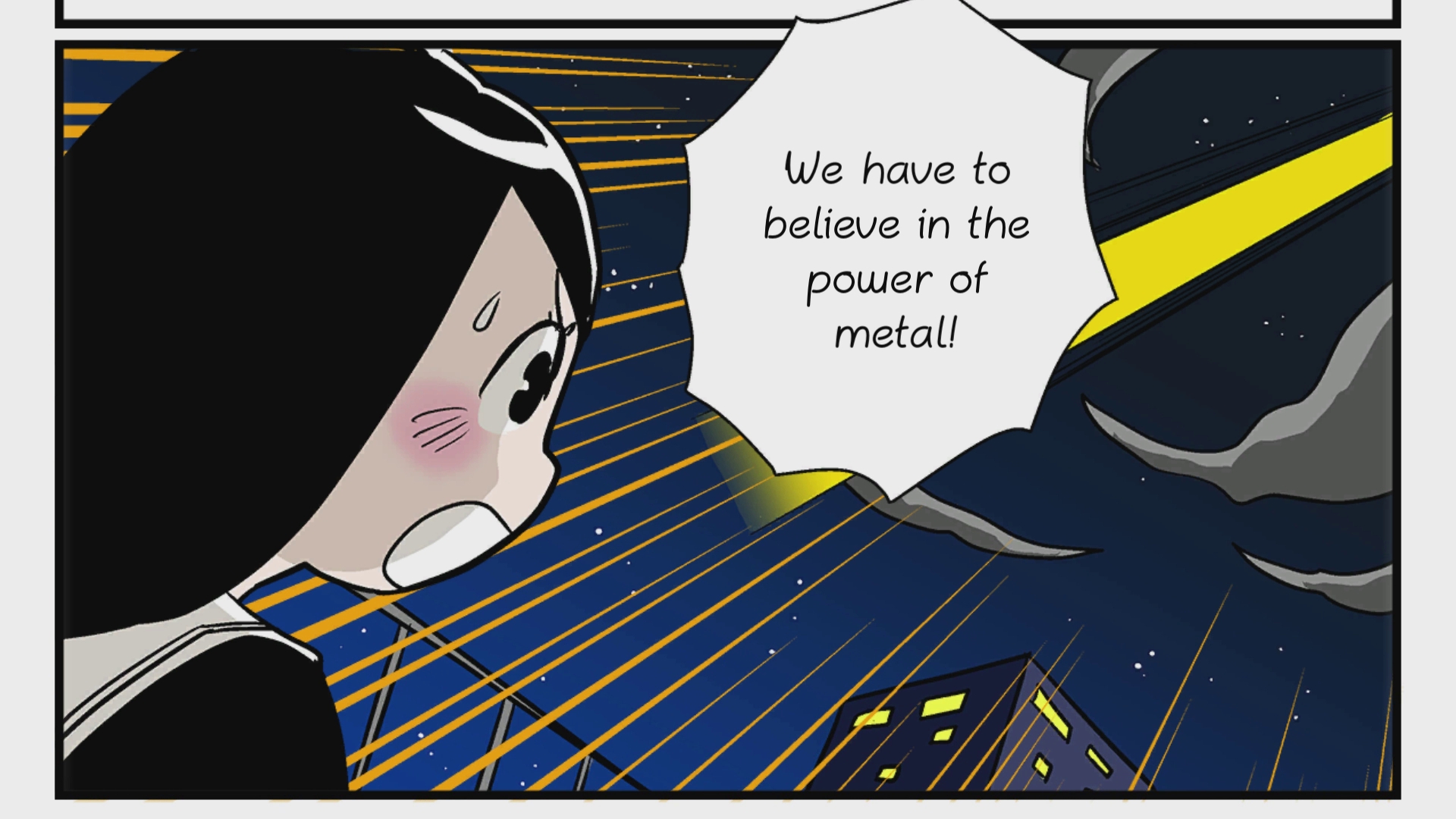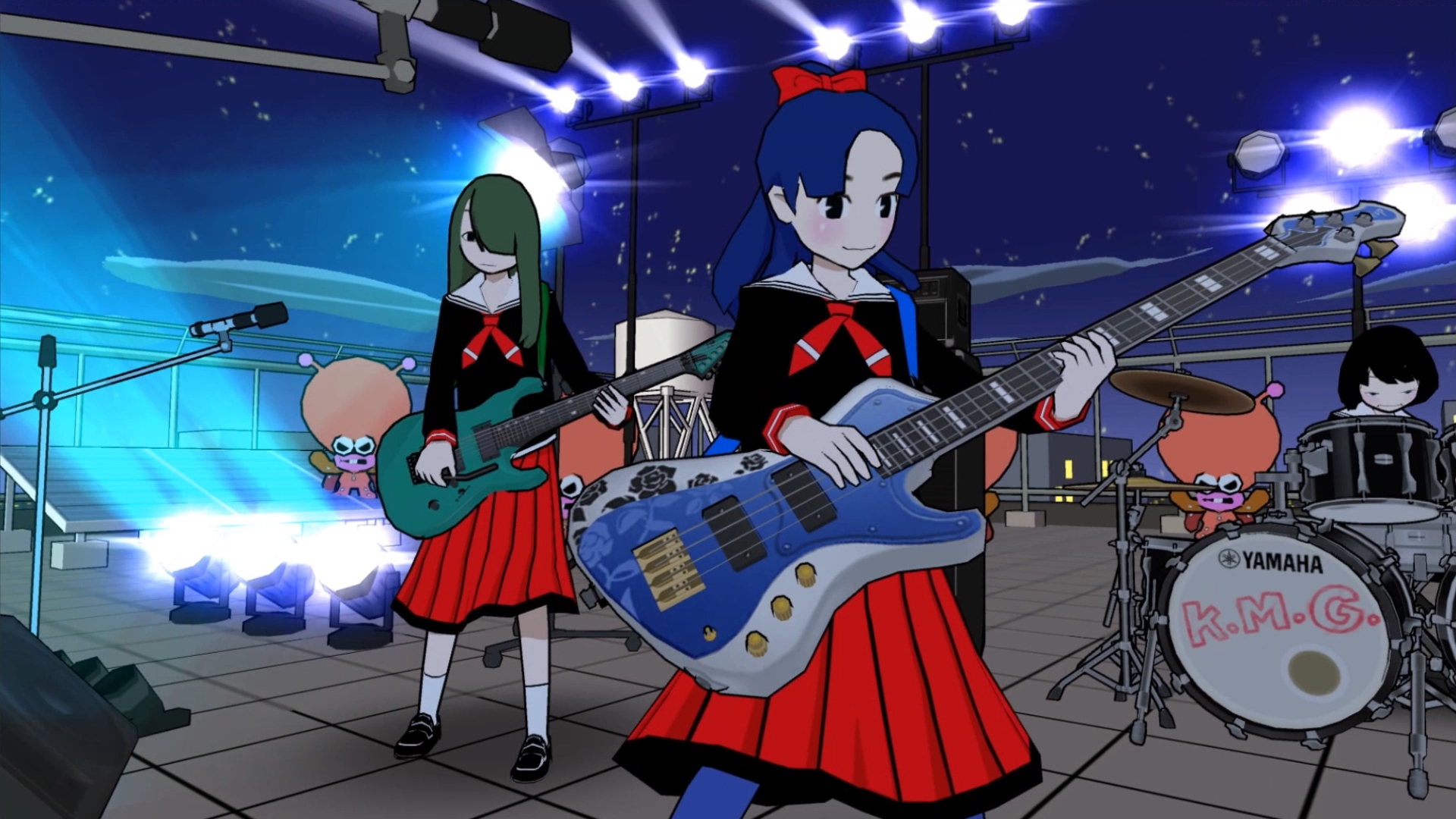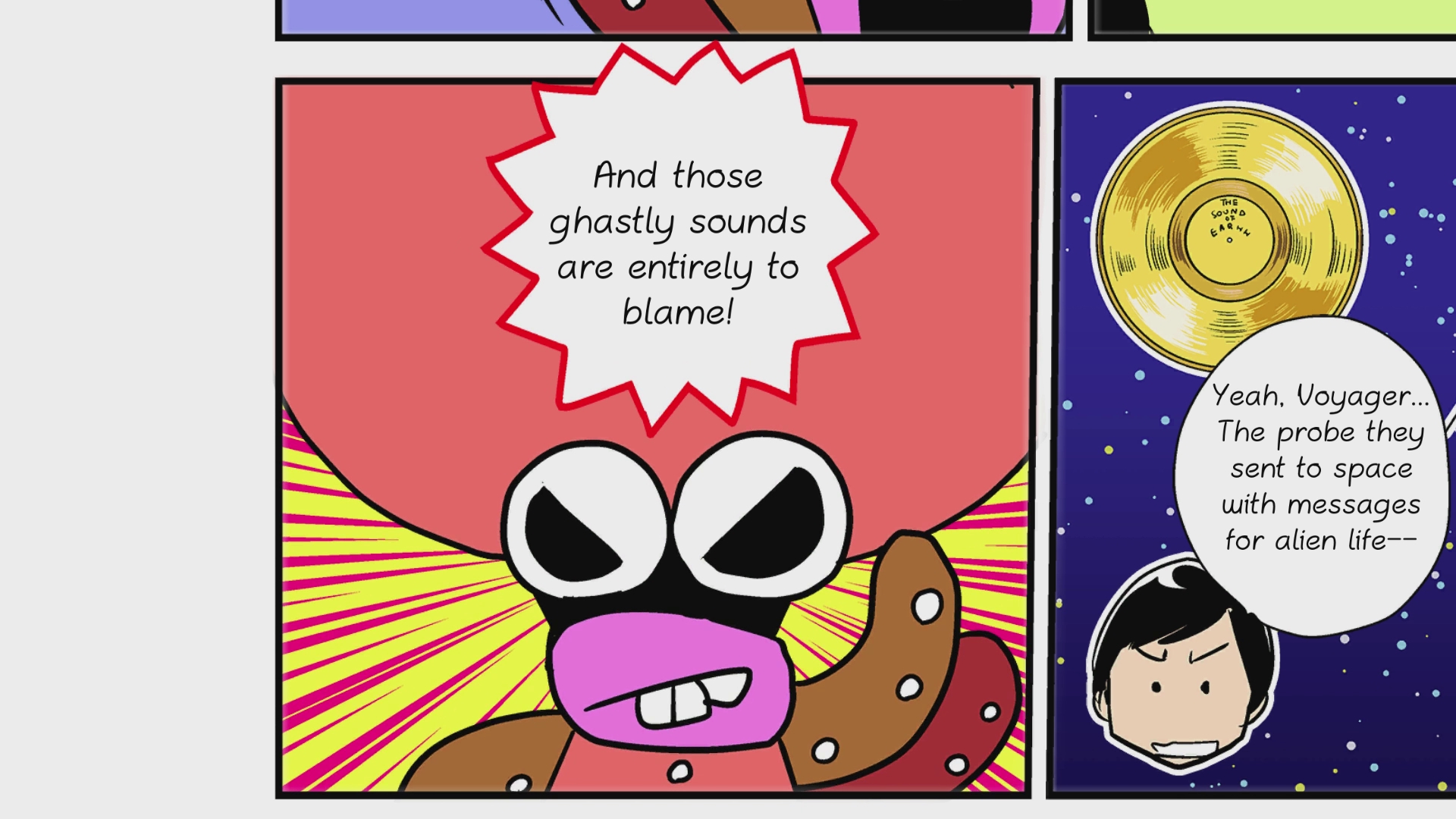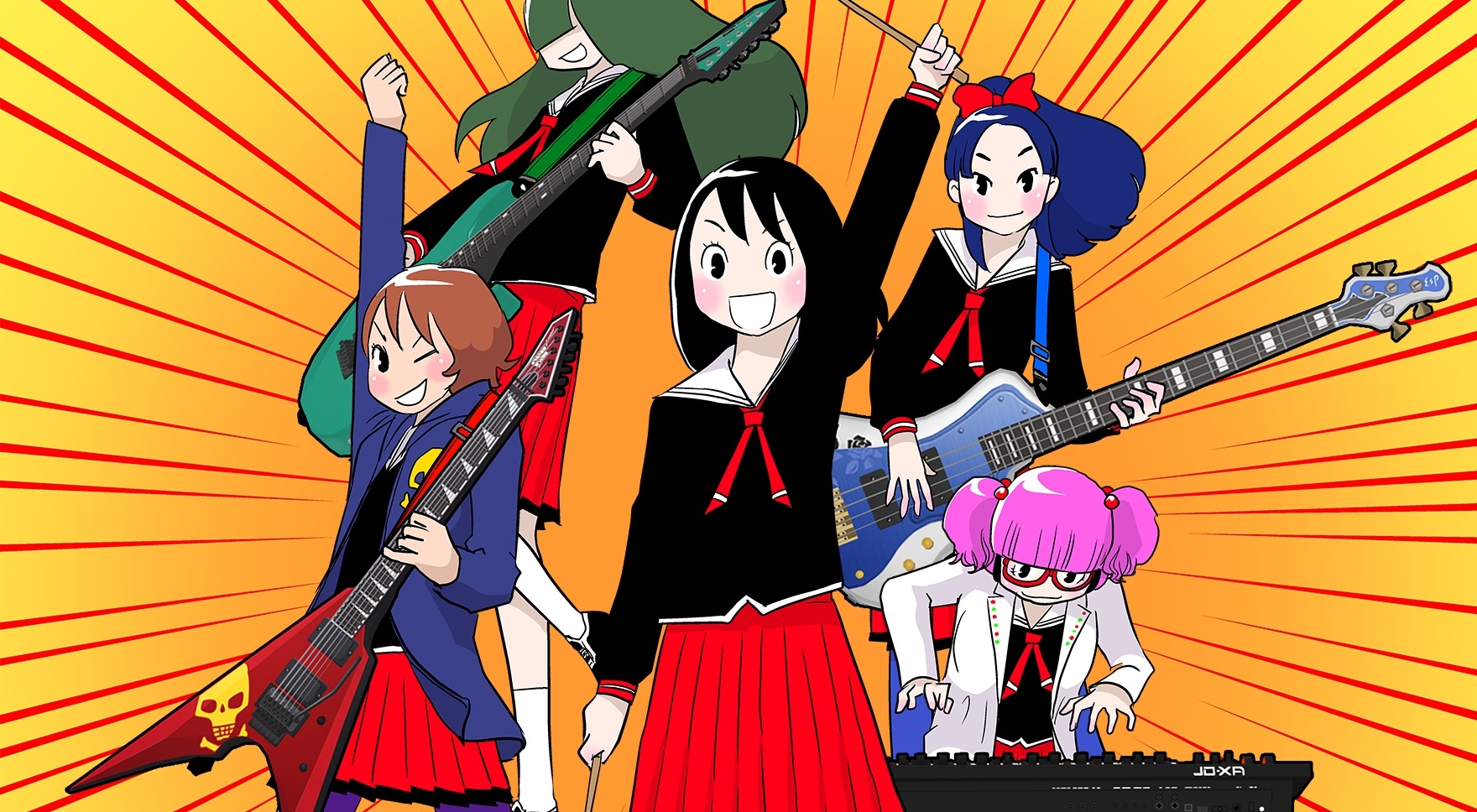I had the wonderful opportunity to sit down and speak with an industry veteran and metal legend, Tak Fujii, at this year’s Electronic Entertainment Expo.
We talked up his origins, his departure from game development, his interests and influences, and of course – his glorious return to game development and his new title: Gal Metal.
You can find our interview below:
Niche Gamer: We’re here with Mr. Fujii, an industry legend and a fellow metal-head if I’m not mistaken?
Tak Fujii: [growling] EXTREEEEEEEMEEEEE! [all laughter]
Obviously, most of our fans know you from Ninety-Nine Nights II. When you left AAA, were you still considering game development? Like maybe contract work. Also in your return, what made you want to come back to make a really niche game? Why you went with a DMM?
Okay, let’s see. That’s a lot of questions. [laughs] Well, okay. Let me pick it up. What is DMM to you? That’s the real question.
When people hear DMM, they think it’s for mobile, like smartphones, paywalls, that kind of stuff. People were happy to hear you were on the project.
DMM is not only in game development. They do everything like effects or like the rental stuff, or even streaming. We are coming for business in Africa or we are trying to get some business in Vietnam. We are pretty much a venture company. We do whatever sounds fun, including a VR game or even a VR movie, anything really.
The company itself is looking for something new. Something new, something that doesn’t exist in the past. They gave me the opportunity to be a developer, on this game. I have to bring something they have never done before. No mobile, no social, no gacha. What is that? It’s a console game. Because they don’t really have anyone with console background in their production, me and very few other people could handle console game development.
So it’s a new try for DMM, because this is actually the first original console title for them. This is a challenge for DMM as well, and for me, to bring you another title that is exciting. I don’t want to copy other games. Well, it might be a late genre but it’s a brand new concept for a music game. It’s my challenge and a challenge for DMM. Just looking for a new challenge on myself and my place.
You mentioned there’s a challenge when you were assembling your team in the new game. Were you pretty much like calling old colleagues?
No, I don’t do that because as a producer, I mostly used external studios, because I’m working globally. So I use a Japanese studio, I use a Russian studio, I use a UK studio. My team was like me and the director, that’s it, and we use all this outsourced help and put them together. In a Konami role, the challenge to make a title for the west was my big challenge.
Of course Metal Gear was here and when it was here, around that moment, around 2010 or something, there was so many AAA games around. We, Japanese developers, were losing our share against western titles. We are operating with a mindset like ‘What is the next share with Japanese games?’ Our executive and myself come to E3 every year, watching these fancy AAA titles.
I thought, ‘Hey, we cannot make this happen because if we make something like them, there’s no future because they can make it.’ We’re going to make either something only we can make or make them to have us make a game for them. That’s coming from my job at Konami. I got used to using external parties, freelancers, script writers, or studios. This game is made up of other studios.
Do you think that you’re channeling heavy Japanese themes? To me it feels like you’re taking pride with it. You’re just saying, ‘Hey, I’m a Japanese developer, this is my game, I want to go for the market that wants this type of style.’
First of all, I didn’t expect this to be coming West. [all laughter]
This is purely 100% made for the Japanese domestic market. If I ever think or thought about the American market, this could have had a different art style or visual style, or the music and sound could have been different.
But at that moment I didn’t think of having a single percent of North American market. However, when I announced this, so many users said, ‘Hey, is this coming to the West?’ and ‘We want to play, it’s metal,’ or ‘It’s a game for Americans, right?’ I kept replying ‘Yes!!’
We had discussions about it, but DMM doesn’t have a branch for North America and Europe. Of course, thanks to the Nintendo Switch, I could release it to the western market with a single click, distributing the game to the American or European eShop. I could do that. But that’s not how you sell a console game. I need a BIG STAAAGE! I NEEEED SOMEONE TO CHEER ME AND MAKE BIG MONEY!!! Tak Fujii, right? [all laughter]
I deal with my internal team and of course, there’s so many publishers. XSEED got onto my ship, ‘Hey, it’s a cool game, let’s rock and roll! Bring metal to America. Hopefully you guys are happy.
When the game was announced, we had lots of our fans asking for a western release. It was a big response.
I’m very appreciative of those fans! Those voices recognize me, rather they think about me, who I am. What was my main role as a Japanese developer trying to sell the Japanese game, struggling to get into the Western market, fighting through the Western market. Right?
I thought ‘Hey, I got to sell this game to the world.’ That’s my task, that’s my role. That’s my job, my unique job that not everyone can do. I have over 23 years in the game industry, so it’s my destiny. The God of Metal said, “Sell it in America!!”
So you started to rediscover your role in the industry, what kind of title you could make.
There are so many talented people in this industry, but each person has a specific role, like this guy will make a fine AAA title, this guy will make the perfect moe game, and each one of them has a unique role. So they can survive in a bloody, muddy, industry.
So it’s my role to bring the Japanese game to the world and show the spirit of the Japanese developer, while not imitating anything. We evolved the original concept of a game, which can go back to the SNES or the PlayStation One, those golden Japanese eras.
It’s up to me to bring in some new concepts of games, to open the gates to the next game design concepts or whatever. If anyone thinks, ‘Hey, this is a cool game,’ if anyone decided to come to the game industry, that’s my goal, to expand the gaming industry, because I’m dying soon. I’m getting old. [all laughter]
The first question I have regarding Gal Metal is obviously, what inspired you? Was it like Babymetal, Deadlift Lolita, stuff like that? Mixing cute and metal.
Yes, I know them [growls and imitates cute singing] [all laughter].
There’s some inspiration from there, because it’s an homage, it’s pretty unique. On the other hand, again, I was aiming for the Japanese market. With anime, the music for anime, or Japanese cartoons or even games, it heavily relies on the metal sound in my opinion.
Like even back to Final Fantasy V, if you remember the old theme for the boss battle, it’s progressive metal. It’s heavily inspired by American or western metal.
Maybe like Steve Vai, more like full-blown progressive metal?
Yes, pretty much melodic. It’s like the Nordic metal, or Swedish metal, I’d say, like Dragonforce or something. Japanese culture really loves the melodic and speed-y metal, like X-Japan. [air drums really fast, sings off tone purposefully] I’m sorry.
But that culture is expressed on games and anime heavily. So I was thinking, ‘Hey, it’s got to have a hook, rather than using the pop music or average music,” because in music games, there’s Idolmaster already. A bunch of pop, cute girls, singing, it’s there – it’s not something unique.
I need a spike. That’s why I chose metal instead of other stuff like pop music.
Were you thinking of other genres before you went to music rhythm? Like an action title, a shmup or something.
I started my career as a song composer and a sound designer. My entire life is heavily related to music and metal itself, and of course, punk.
During the Konami era, I was really thinking if there’s any possibility to make it a music game there, but they have Bemani and DDR. I was in the Winning Eleven team, which is a soccer game for the west. So there was little chance to make a new game in that picture.
Since I left Konami – hey, it’s a time for me to make rock and roll – real rock!! It just came out naturally. The game experience and the music experience put together. This is something unique, this is something I can make.
Now I have to ask you, to make it more fair, what are your favorite rock, punk, and metal bands, or artists?
Ok you see, this is the Gal Metal model [lifts up guitar].
Oh my God. That’s so cool.
The girl wearing the parka, it’s the same as this one. This is made by ESP, of course. The keyboard is from Roland, the drum is from Yamaha. The cymbals are from Zildjian, and the bass drums are from Ampeg.
This is a real music game. That’s the message from me. I don’t want to put fake instruments in it. Unfortunately, they have a contract band and Yamaha has a supporting band. I cannot speak about my favorite band [laughs].
It’s awesome you have the licensed instruments in the game.
Oh yes. It’s all licensed. The one the girl has over there is also from ESP.
What kind of dynamic is there with a licensed and well-known brand like that?
They are really happy working with me. They are looking for the new age players, right? New kids to pick up the guitar and play the guitar or drums.
Nowadays it’s all knobs and buttons [imitates a house DJ pretending to make music] [everyone laughing] [imitates lame house music].
Okay, I’m getting old. Maybe I’m not in that genre, but it’s heavily based on the computer. It is a skill. It is your skill, but it’s heavily connected to the computer. It’s not like they are playing dodge spaceship itself.
I want to make the next generation of players. Whoever plays Gal Metal at a young age, maybe they’re going to get some sense of being in a band, of playing in a band.
The way you get a high score, well, maybe they’ll have a chance to pick up the drums, pick up a guitar, like they played in a young age. That’s my goal, portable education.
I’m really curious – I know you can’t mention favorite bands, but what’s your favorite song?
Hm, well, let’s see… [plays a melody on guitar] [sings] ‘Now, the end is near..’ I cannot sing. Well, you can find the song on YouTube. My Way.
I know the song, but it’s a cover?
It’s the version by Sid Vicious. Frank Sinatra wrote that.
I really love that song, I’ll have to check out the cover now!
It’s so street, so punk. It’s a beautiful melody. It’s supposed to be. He is a drunk and he’s addicted to drugs [wails and sings while playing wildly but filled with passion] [all laughter].
Ok now I have to hear this cover. I know that you focus more on playing the drums in the game. Did that just come natural to you to go with that instrument?
I expect that non-music platform players will play this game. They don’t know how to read a note, right?. They have no idea what to do if they had notes in front of them. How do you adapt this?
At least, we have fingers, you know when you have a table [drums on the desk], you know how to make a beat. It’s global. In metal, punk, Japanese style, Latin, African beats, even without the instruments, like [drums on the desk] “Dum dum cha”, it generates the rhythm.
All the music around the globe is based on rhythm. There’s no music without rhythm. Well there are some, but I don’t want to speak about them. It’s global. You start the music by the rhythm.
I thought this is.. not lacking skill, but it’s much easier to get into. Without the Joy-Con, you can see how we play here [tapping] and you can have fun with your friends without a Joy-Con. That’s very important.
If I made a guitar game, you should have a guitar in your hands. This is game for everyone. This is not a game like you’re pushing a pad in front of the big screen or something. This is a game for everyone. Play, listen, laugh, you just have fun as a band.
Why did you go more freeform and just allow the player to just play, rather than just being “You have to do this at this time”?
For me, I was a piano player. I’ve studied piano since I was four years old. The best moment was when I remembered all the notes. The notebook, just like hearing it in my muscle, leading my mind into the next level. That’s how music is supposed to be.
Reading the note, playing exactly the same way as the book, is not fun. It’s a practice space. The most fun part is knowing how to play, knowing what the elements are. How are you going to play? How are you going to combine those together to make your style, your emotion, on the same piece?
Maybe it’s not going to be the same. If a hundred players play this game, the same song, there’s no records similar to the game because it’s free, free form for the drummers. That’s something I wanted to happen to all the players. Think about the rhythm, build your own, make your creation.
In terms of the art for the game, there’s a lot of games from Japan territories that have highly processed characters and a very, very cute art style. Gal Metal has more washed out colors and is still more playful. Was that a conscious decision?
It kind of came naturally because I don’t like moe and kawaii stuff. I didn’t say that. [laughter]
This is the manga artist Mr. Toshinao Aoki. He has been working with this style for over 40 years and I really love his style. Believe it or not, this is coming. [holds up artwork] This is a new genre. Watch out. [laughter]
I’m really curious why you got into game development instead of trying-or if you did try to be a professional musician, like have a band and tour?
Well, I’ll be the musician, so don’t worry. I will have a world tour after I get retirement from the game industry. I’ll be picking up the acoustic guitar and travel around the world. [all laughter]
I mean, being the musician doesn’t have to be, you eat by your music success. Music is about the fun. Although I play the guitar or a piano for my fun, I’m a musician. I’m living with the music.
I agree, completely.
Don’t worry. I’ll be making a global tour. [laughter]
Now you are with Gal Metal.
Yes, I could be.
I think I know so. That’s about all we have – thank you so much for your time Fujii-san!
Okay, thank you!
Gal Metal is launching for Switch sometime this fall in North America and Europe. In case you missed it, you can find our thorough hands-on preview for the game here (we’re really excited for it!).
Niche Gamer regularly interviews developers on a variety of subjects—if you’re a developer and want to chat with us, please contact us!
